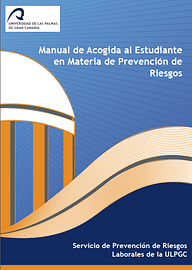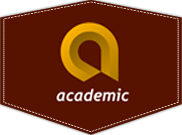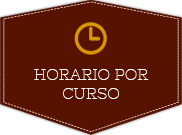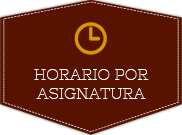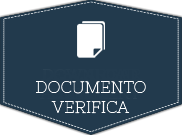It is likely that you have a preconceived idea about what Veterinarians do, for example, they take care of our pets (dogs and cats) or horses when they are sick, or they keep production animals healthy (cows, sheep, chickens) or they are dedicated to helping to wild animals. All of that is true, but…. Did you know that veterinarians also play a fundamental role in defending people's health? And in the protection of the environment? And in the economy? Veterinarians work to guarantee the safety of the food we eat, preventing the spread of diseases from animals to people and avoiding millionaire costs for livestock production. Without Veterinarians, life would be impossible.
[ Human Health + Animal Health = One Health ]
Know something else! Why are vets important?
Veterinarians…care for pets and production animals. Can you imagine your pet's life without a vet? No treatment when she got sick. No vaccines to protect you from diseases. His life would be shorter and of less quality. All animals deserve to be healthy and happy, and veterinarians make this possible. Veterinarians help farmers care for their animals and keep animals in zoos and slaughterhouses well and kept in the best possible condition. Two thirds of the veterinarians in Europe carry out this type of work, they are the clinical veterinarians. The field of work of clinical veterinarians has had a great evolution. At the beginning of history they were only dedicated to treating horses used in wars, later they began to treat production animals, including bees and fish. Now, as people have an increasing variety of pets, and want the best possible care for them, clinicians have learned to treat rabbits, ferrets, rodents, birds, and snakes, to name just a few. Many others treat zoo animals, wild animals and animals used in sport, such as horses and greyhounds.
Veterinarians… make it possible for you to safely enjoy a juicy steak. If you like to enjoy a tender steak, a delicious hamburger, a savory chicken thigh or a succulent roast lamb, stop and think for a moment, not only about the rancher who raises these animals, but also about the veterinarian. To ensure that the meat, dairy, fish and eggs you eat come from healthy, disease-free animals. People can become seriously ill from contact with sick animals or from eating contaminated animal products. Bovine Spongiform Encephalopathy (BSE), salmonellosis or E. coli infections are just a few examples. In fact, 75% of emerging animal diseases can be transmitted to humans and 61% of human pathogens are of animal origin. Veterinarians specialized in food safety work on farms and in slaughterhouses, carrying out analyzes and inspections, to ensure that only products suitable for consumption enter the food chain and reach your plate. These veterinarians investigate the presence of chemicals in animals and their products that may jeopardize their quality and safety. They are also in charge of monitoring possible food fraud.
Veterinarians... work to ensure that everyone has enough food. The world population is continuously growing and we have the challenge of producing food for everyone. Will we be able to cover the world demand for milk, eggs, fish and meat in 2020? Veterinarians have a fundamental role in this challenge. Helping to achieve sufficient animal production, fighting diseases and helping animal husbandry through reproductive techniques such as artificial insemination and embryo transfer. Techniques that can also contribute to saving endangered species.
Veterinarians… contribute to achieving strong animal production. Did you know that there are 14 million farmers and ranchers in Europe? They and their families depend on healthy and efficient production. But without the help of veterinarians to keep diseases under control, ranching would not be possible. Meat, dairy products, eggs etc. they would not be suitable for consumption and their sale would be impossible. Outbreaks of diseases such as avian influenza or bovine tuberculosis can bring livestock activity to a standstill, causing millions in losses. The work of veterinarians monitoring and preventing the appearance of diseases contributes to the maintenance of European farmers and their families.
05 Vets… boost the economy. Every year, livestock and its production contribute billions of euros to the European economy, which is only possible thanks to the contribution of veterinarians. The trade of meat and dairy products, especially the international one, would be very complicated for farmers and businessmen without the guarantee of their safety. Veterinary inspections and certificates provide importers and exporters with the necessary guarantees, encouraging them to buy and sell, thus boosting the national and international economy, for the benefit of all.
Veterinarians… protect the environment As is well known, environmental pollution and climate change are two big problems, to which livestock farming and animal husbandry also contribute. Without the work of veterinarians, these activities could have a greater impact. Veterinarians help farmers and other animal owners to act in a more environmentally responsible way. For example, veterinarians guide farmers in the responsible use of medicines and chemical products, as well as in the treatment of waste, thus avoiding environmental damage.
Veterinarians... deal with and control outbreaks of infectious diseases. Outbreaks of infectious animal diseases occur periodically. The consequences can be serious; Diseases such as foot-and-mouth disease, salmonellosis or BSE can cause the death of thousands of animals, cause illness in people and produce millions of losses in livestock. All European countries have official veterinarians who inspect and control livestock farms, slaughterhouses, food industries and border points to prevent infectious outbreaks at the front line. If an outbreak still occurs, vets limit its impact and minimize losses. Veterinarians carry out this control continuously. It was in this way that the serious outbreak of foot-and-mouth disease that occurred in the United Kingdom in 2001 was detected.
Veterinarians... ensure that their profession is solidly developed for the future. Veterinarians don't just take care of that front line, working side by side with farmers and treating the animals. Other veterinarians lead innovative research programs developed in different industries and laboratories looking for new drugs and treatments, as well as new methods to obtain healthy food. And many other veterinarians work in universities and other educational centers training professionals to ensure that animal care and food will continue to be in good hands in the future.
Veterinarians... try to improve this world. In Afghanistan, in Somalia, wherever there is a war or a disaster, there will be veterinarians working to alleviate its consequences. There are veterinarians in the armies taking care of their animals, but also taking part in peacekeeping missions, ensuring adequate supplies of water and food. Veterinarians also deal with helping animal populations in disaster areas.
In conclusion… Animals. All people who eat meat, dairy products, eggs, fish and other foods of animal origin. The ranchers. Environment. The economy. They are just some of the beneficiaries of the valuable work of vets.
[ Human Health + Animal Health = One Health ]
We cannot live without vets. And these need the support of decision makers in Europe. This information has been compiled from the FVE. More information about the essential work of vets and the FVE can be found on the website www.fve.org
The degree of Graduate or Graduate in Veterinary Medicine from the University of Las Palmas de Gran Canaria (ULPGC) is an official face-to-face degree in the Branch of knowledge of Health Sciences that qualifies for the exercise of the Veterinary profession. The studies are completed with 300 ECTS credits, therefore this degree lasts five years (60 ECTS per year) and is assigned to level 3 (master) of the Spanish Qualifications Framework for Higher Education (MECES). You can consult the resolution of the Council of Universities (discharge). The ULPGC, which is a public university, offers 72 admission places each year for this degree. The ULPGC guarantees the application of the Order ECI333/2008, of February 13, which establishes the requirements for the verification of official university degrees that qualify for the exercise of the Veterinary professionTherefore, our graduates have acquired the following skills:
- Hygiene control, inspection and technology of production and processing of food for human consumption from primary production to the consumer.
- The prevention, diagnosis and individual or collective treatment, as well as the fight against animal diseases, whether considered individually or in groups, particularly zoonoses.
- The control of the breeding, management, welfare, reproduction, protection, and feeding of the animals, as well as the improvement of their productions.
- Obtaining products of animal origin in optimal and economically profitable conditions and assessing their environmental impact.
- Knowledge and application of legal, regulatory and administrative provisions in all areas of the veterinary profession and public health, understanding the ethical implications of health in a changing global context.
- Development of professional practice with respect to other health professionals, acquiring skills related to teamwork, efficient use of resources and quality management.
- Identification of emerging risks in all areas of the veterinary profession.
The ULPGC guarantees that the training of the Veterinarian, and that the professional in question, has acquired the following knowledge and skills (article 38, DIRECTIVE 2005/36/CE, modified by DIRECTIVE 2013/55/UE):
- a) adequate knowledge of the sciences on which veterinary activities are based and of Union law relating to such activities;
- b) adequate knowledge of the structure, functions, behavior and physiological needs of animals, as well as the skills and competencies necessary for their breeding, feeding, welfare, reproduction and hygiene in general;
- c) the clinical, epidemiological and analytical skills and competencies required for the prevention, diagnosis and treatment of animal diseases, including anesthesia, aseptic surgery and painless killing, considered individually or in groups, including specific knowledge of diseases that can be transmitted to humans;
- d) appropriate knowledge, skills and competencies for preventive medicine, including survey and certification competencies;
- e) adequate knowledge of hygiene and technology used in obtaining, manufacturing and marketing animal feed products or food products of animal origin intended for human consumption, including the skills and competences necessary to understand and explain good practices in this regard;
- f) the knowledge, skills and competences necessary for the responsible and sensible use of veterinary medicinal products in order to treat animals and ensure the safety of the food chain and the protection of the environment.
What do I have to do to enroll in Veterinary Medicine? Access to any title from the ULPGC is a centralized system that manages the central services of the University, so the Faculty of Veterinary Medicine, as an administrative unit, does not directly manage the system for access to titles. For access to any title of the ULPGC you can inform yourself directly on the Web ULPGC for you. To collect information about access to the University, university residences, accommodation bags, etc. You can call the Student Information Service (SIE) at 928451072 or 928451074 or send an email to sie@ulpgc.es. You can also contact the Access Service by phone: 928-453378 or /79/80/73 or send an email to contactopau@ulpgc.es
Where can I consult the information on administrative issues such as registration, access by file transfer, fees, homologation of studies? All this information is published on the website of the veterinary building administration (Access your web) and more specifically in the section related to academic management (Access the web)
I am a student at another Veterinary Faculty in Spain. How can I access the ULPGC to continue my Veterinary studies? All the information related to File Transfers can be found published on the Veterinary Building Administration website (Access the website) and more specifically in the section related to academic management (Access the website)
I am a foreign student from the European Union or from a country with a reciprocity agreement (Andorra, Iceland, Norway, Liechtenstein, Switzerland and China). How can I access Veterinary studies? You must carry out the procedure for issuing credentials, which is a general requirement for access to the Spanish University and which is carried out directly at the National Distance Education University (UNED) (Access the website).
I am a foreign student from a country without a reciprocity agreement, how can I access Veterinary studies? Access to the Spanish University requires you to take the University Access Test (PAU). Abroad, who is in charge of doing it is the National University of Distance Education (Web UNED). Check their website or Access the websiteto know when, how and where to do it.
I am a student from training cycles. How can I access Veterinary studies? In the following link you will find all the information about the access of Students with a Higher Technical Degree in Vocational Training, Higher T. of Plastic Arts and Design or Higher Sports T. and equivalents (Access the website). Keep in mind that the Bachelor's degree in Veterinary Medicine is attached to the Branch of Health Sciences.
What is the cut-off grade for Veterinary Medicine? The cut-off grade for the next course will not be known until the last student enrolls. Therefore, the cut-off marks vary from one year to the next depending on the supply of places and the demand. . As a guide, you can find out about the cut-off grade for this academic year at the following link on the ULPGC titles (Access the website) or on the web notadecorte.info (link).
What is the registration or enrollment period? Keep in mind that to access the centers of the University of Las Palmas de Gran Canaria you must pre-register within the deadlines established by the University and that you can directly on the Web ULPGC for you.
How much are the tuition fees in Veterinary Medicine? Once admitted to this Faculty, the Academic and Administrative fees to be paid are established by virtue of a decree of the Government of the Canary Islands, which sets the prices to be paid for the provision of academic services of a university nature for each course. academic. It is published in the Official Gazette of the Canary Islands in the month of July of each year. You can check the latest academic fees in the academic management information on the administration website (Access the website)
For personal or work reasons I cannot live in Gran Canaria. Can I study Veterinary Medicine remotely or by going from time to time? Veterinary studies are face-to-face and it is NOT possible to take them blended, or remotely. There is only the possibility of studying part-time, but you must keep in mind that studies in Veterinary Medicine have a high demand for attendance, so they may be incompatible with work schedules or other personal responsibilities. As it is a degree in the branch of health sciences with a very important practical component (minimum of 40% in each subject) and with a very high requirement of attendance; “It is mandatory to attend at least 90% of the practical classes and 50% of the theoretical classes in order to have the right to sit the exams“. To get an idea of the dedication these studies require, you can consult the calendar by course (choose a course and browse by week).
The subject External Practices of the Degree in Veterinary Medicine by the ULPGC have been structured into two compulsory subjects that are taught in the fifth year.
- 42543 – External Practices and Mobile Clinic I (6 ECTS)
- 42544 – External Practices and Mobile Clinic II (6 ECTS)
As stated in the title verification report, the external practices will consist of stays in Veterinary Establishments (Offices, Clinics or Hospitals), Slaughterhouses, Livestock Farms, Companies and external Organizations of the veterinary or related field.
The student must complete the Training program through the use of the PORTFOLIO. This document compiles the learning objectives and the evaluation of the competences of day one of the title.
Consult all the information related to the development of external practices in the following link (External practices website)
The Final Degree Project for the Veterinary Graduate degree from the ULPGC is structured into: (End of Degree Project website).
- INSTITUTIONAL WEB OF THE TITLE
- Justification of the title
- Competences and objectives of the degree
- List of essential competencies of the title or Day-One Skills of the EAEVE updated in the SOP of Uppsala in May 2016. (EAEVE Web Link)
- Student access and admission
- Entry and exit profile (revision 18 July 2018)
- Administrative information (link to the Web of the Administration of the Faculty)
- Access and registration information (link to www.ulpgcparati.es)
- Regulations for progress and permanence in the ULPGC (link to regulation)
- Scholarship Information (link to the ULPGC website, Scholarships and Aid Service
- Teaching planning
- Tutorial Action Plan and Student Orientation
- Academic staff and tutorial hours
- Material resources and services
- Center Administration website (Structure and units)
- expected results
- Quality Assurance System
- Implementation schedule
- Table of equivalences (bachelor's degree - Degree) in Veterinary Medicine by the ULPGC
- Automatic Recognition Table (TARTA) of subjects among the Veterinary Degree studies of the Veterinary Faculties of Spain (Resolution of the Vice-Rector for Teaching Staff and Academic Planning, September 12, 2016, BOULPGC of November 2, 2016)
INITIAL REPORT FOR TITLE VERIFICATION
Chronology of elaboration of the title:
- Commission of the Title of the Faculty of Veterinary Medicine (12-05-2009).
- Commission of the Branch of Health Sciences of the ULPGC Faculty Board (22-06-2009).
- Governing Council of the ULPGC (22-12-2009).
- Favorable verification in ANECA (05-25-2010)
- Approval by the Government of the Canary Islands (11-11-2010)
- Approval by the Council of Ministers (11.02.2011) and registration in the Register of Centres, Universities and Degrees (RUCT) (BOE 16-03-2011)
- Publication in BOE of the study plan. (BOE 3-10-2011)
- Publication in the BOC of the study plan (BOC 7-10-2011)
- Resolution of the Office of the Vice President for Academic Organization and EHEA, of October 25, 2011, by which the study plan of the Degree in Veterinary Medicine is published (BOULPGC 3-11-2011)
- Approval by the Governing Council of Modification of the Title (BOULPGC 02-29-2012)
- Title Verification Complete Memory (Initial version)
MODIFICATION OF THE TITLE (NOVEMBER 2011)
- Document sent to rectory (December 2011)
- Marine Mammal Health and Fish Pathology course sheet (October 2011)
- Document justifying the proposal for Parasitic Diseases as an annual subject (February 2012)
- Modification of expected results
- ANECA final report on the proposal to modify the study plan (April 19, 2012)
- Title Verification Complete Memory (Version amended Nov. 2011)
MODIFICATION OF THE TITLE (JANUARY 2018)
- consolidated memory
- ANECA final report (2 January 2018)
- Resolution of the Rector by which the modification of the title is published (BOULPGC March 5, 2018)
FIRST TITLE MONITORING REPORT (October 9, 2013).
- Allegations to the provisional follow-up report. (discharge)
- final report of the Canarian Agency for University Quality and Educational Evaluation (ACCUEE) in relation to monitoring compliance with the project contained in the study plan, verified by the Council of Universities, of the Official Titles of the Autonomous Community of the Canary Islands (discharge).
- Our title agrees with the Royal Decree 1837/2008, of November 8, which incorporates into the Spanish legal system the Directive 2005/36/EC, of the European Parliament and of the Council, of September 7, 2005, regarding the recognition of professional qualifications, although it has recently been published in the Official Journal of the European Union the Directive 2013/55/EU of the parliament and of the council of November 20, 2013 by which Directive 2005/36/CE is modified
- The Order ECI/333/2008 that establishes the requirements for the verification of the official university degrees that qualify for the exercise of the Veterinary profession.
- ASSIGNMENT TO LEVEL 3 (MASTER) OF THE MECES.Resolution of the Council of Universities (discharge).
